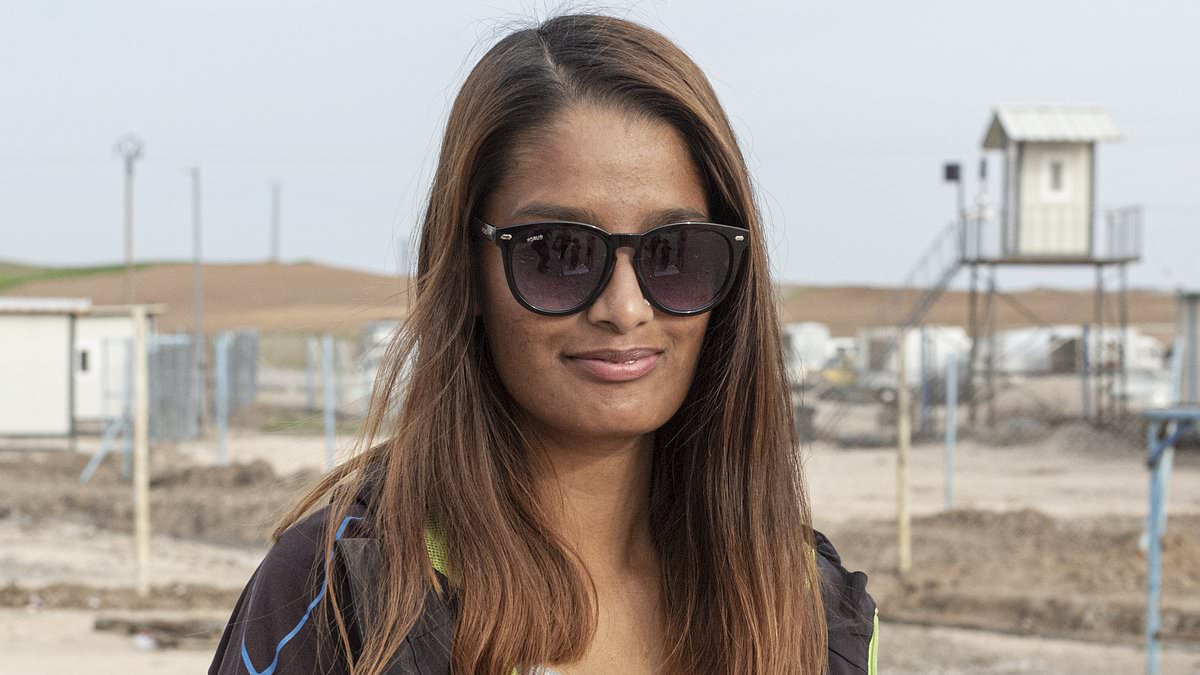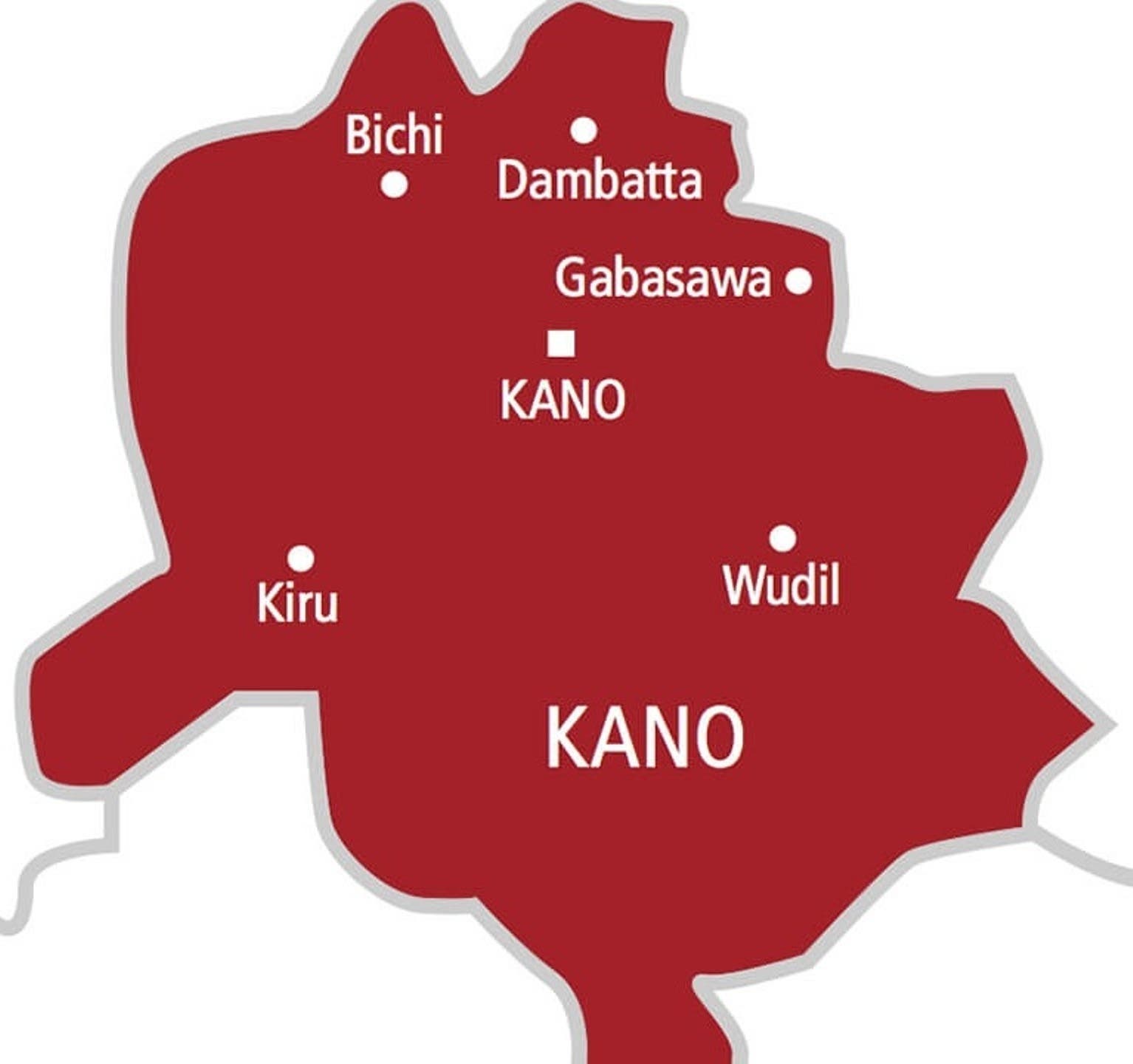Copyright dailymail

His voice is gentle, his eyes calm, his smile polite; he looks harmless, the kind of ordinary man you might pass without notice on a London high street. But this man is not ordinary. He was once in ISIS, the world’s most savage terror group – he helped to power one of the 21st century’s greatest horrors. We meet in a hut in east Syria. It is bare except for two plastic chairs. The air is heavy with heat and dust. The man across from me is in brown prison clothes. I am conducting a rare face-to-face interview with a British jihadi. Imad Othman Mohamed Ali is one of 10,000 presumed ISIS-affiliated men and hundreds of youths in 14 prisons run by the Kurdish-led Syrian Democratic Forces (SDF) across north-east Syria. We in the West owe the Kurds a debt. First, we demanded they help us defeat ISIS; then, after the terror group’s so-called Caliphate was crushed militarily in 2019, we insisted that they imprison its remnants. The Kurds loathe ISIS. But how much longer can they do this? They are constantly under attack from their old enemy Turkey. They fear Syria’s new government, led by former jihadi Ahmed al-Sharaa, is sympathetic to ISIS. And they rely on foreign funding, much of which Donald Trump withdrew this year. Without sufficient resources, these prisons and camps can’t hold – yet what’s inside them is deadly. The jihadi ideology festers here. If the Kurds falter, the ISIS nightmare could return. Let us never forget that, from 2013-19, the Islamic State turned Syria and Iraq into laboratories of terror, where brutality was staged as theatre. In Raqqa, its self-declared capital, ISIS carried out beheadings in public squares, mounting the heads of its victims on spikes. In Mosul, men accused of homosexuality were thrown from roofs. Prisoners were doused in petrol and set alight in cages, the horror broadcast in slick videos. Women were stoned to death for ‘adultery’; children had to watch executions to inure them to killing. In Fallujah, crucifixion returned to the modern world – bodies nailed to makeshift crosses and left to rot in the sun. Streets that once bustled with traders and children echoed with the chants of black-clad militants and screams of victims. Slavery became a state industry. Fighters were gifted ‘wives’ as rewards. Children were torn from parents and trained as soldiers. ISIS was not only a terror group but a bureaucracy of savagery, cataloguing rape and murder with the same efficiency as it managed its oil wells. Cruelty was systemic, deliberate and proudly executed. Ali arrived in Britain from Sudan in 1989 as a 26-year-old asylum seeker. Britain gave him everything: an IT degree, postgraduate study in Glasgow and a job in tech support in east London. Later he moved to Qatar to work in oil and gas. It was a life far beyond anything he could have imagined in Sudan. Then he threw it away to join the ISIS butchers. Why? He simply wanted ‘to live under Sharia law’. There is no grand narrative here, no tortured tale of poverty, discrimination, alienation. Just quiet, chilling determination to join the Caliphate. Once in Syria, ISIS put him in charge of maintenance across 18 workshops servicing oil wells and pipelines. The work had a rhythm: by day, Coalition jets bombed refineries; by night Ali and his crews scrambled to keep the financial lifeblood flowing. At the peak – from 2014 to 2016 – he claims ISIS cleared $50 million a month from oil and gas, often through intermediaries who sold it to Syria’s then leader Bashar al-Assad, as well as to ‘normal people’ and to Turkey. Through it all he presents himself as a technician, not a soldier. ‘I never trained,’ he says; then admits to occasional ‘ribat’ – guard duty with a rifle – because ‘sometimes they told us to do it’. He insists he never fought, never killed, never saw a beheading. It’s a familiar choreography of denial: the violence was elsewhere, the men in black weren’t him; murders happened offstage. But he knew what he was signing up for, and the banality of his excuses underscores the horror. I press him. He yields a fraction. ISIS ‘did a lot of bad things’, he concedes. Yes, there were unjustified beheadings. Yes, there were moments that ‘shocked’ him: favouritism, hypocrisy, the reliance on smugglers to get potential recruits into ISIS territory one week and the execution of those same smugglers the next. He describes an early period as ‘utopian’, when life under ISIS felt orderly – followed by collapse under Western airstrikes. By 2018, with defeat for ISIS looking inevitable, he claims he’d had enough. He paid a smuggler to reach Turkey. The smuggler handed him to the Kurds. Now he wants a trial, preferably in Britain – in a court. I look at him: the immigrant who had every British opportunity; the engineer who kept ISIS’s wells pumping; the prisoner who craves due process from the country he betrayed. He asks for understanding but accepts no real guilt. Because whatever his denials, Ali was part of the machine that kept ISIS alive. Every barrel of oil he kept flowing funded bullets, bombs and the blades of knives that cut people’s throats, decapitated them. Without engineers like him, ISIS would not have been able to pay fighters, buy weapons or export their bloody chaos across the globe. The calm, smiling man before me is proof of how ordinary the face of evil can be. Next day I head to Al-Roj Camp, a cluster of tents and fences on the edge of the desert in Syria’s north-east governorate of Al-Hasakah. Established in 2014 for displaced families, Roj was once a refuge for those fleeing ISIS barbarism. Now it’s a holding pen under Kurdish control for the women and children of ISIS fighters – a micro-Caliphate behind wire. In its heyday, ISIS drew an estimated 53,000 foreign affiliates from 80 countries, building a network of terror that reached into the heart of Europe. The Paris massacre of 2015 killed 130 people; Brussels in 2016 left 32 dead; Nice that same year killed 86 and the Manchester Arena bombing in 2017 murdered 22 and injured more than 1,000. From 2015 to 2017 alone, jihadi attacks across the EU killed more than 300 people. This was ISIS’s most lethal export: not oil or gas but blood and ideology. And here in Syria that ideology does not die – it breeds. This is the camp that holds Shamima Begum, the schoolgirl who fled Bethnal Green in London in 2015 to join ISIS. She married a Dutch fighter and had three children, all of whom died. Stripped of her UK citizenship in 2019, she lost every appeal against the decision, most recently at the Supreme Court last year. The camp is a tangle of dirt paths, floodlights and rusting wire. Veiled little girls amble through the dust. Without support, camps like Roj could collapse. And then what? Thousands of hardened ISIS families released into chaos. That thought should terrify us. For all the billions spent fighting ISIS, its containment rests with overstretched Kurdish guards and threadbare aid budgets. My first meeting is with the camp’s co-administrator Hukmia Ibrahim. Small, composed and long past outrage, she explains that Roj was set up for families fleeing the barbarism of ISIS and Al Qaeda’s Syrian franchise Jabhat al-Nusra. ‘After the Caliphate collapsed in 2017, it changed,’ she explains. ‘We created a special section for the foreign women and their children who had joined Daesh [ISIS].’ She spreads a map of the camp across her desk. ‘Now we have 765 families here, around 2,300 people – from 50 nationalities. Only a handful of Syrian and Iraqi refugee families remain. The rest are ISIS wives and children.’ Asked about Shamima Begum, Ibrahim replies: ‘She refuses to speak to anyone. She used to wear full Islamic dress but now she’s always in sports clothes. ‘She stays in her tent and won’t engage. She adopted this attitude after she was stripped of her nationality. Once I took a journalist to her tent. She pushed us out.’ I ask if ISIS ideology survives here. She sighs: ‘When you visit the inmates they seem normal. But when Turkish attacks on Kurdish positions are reported nearby, they demonstrate, shouting that Turkey’s coming to save them. ‘When [former jihadi and new Syrian President] Ahmed al-Sharaa’s militia group took control of Damascus, inmates started handing out sweets in the camp. Some came to me and said, “Tomorrow you will be in our place and you’ll see how it feels”. If you visit their tents, you can see bags packed; they are ready to renew their “Islamic Caliphate”.’ Two weeks ago, she says, French government representatives came to try to repatriate families. ‘We have 42 French families here. Only two agreed to go. Now that Sharaa is Syria’s President, most still hope that he will rescue them.’ It is the teenage boys, she tells me, who worry her most. ‘We used to move them to re-education centres when they reached adolescence but there’s no space any more. As they grow older they form gangs, 30 or 40 at a time, attacking schools in the camp, clinics, even each other.’ Then, more quietly, she tells me: ‘We’ve had many cases of sexual harassment and rape – even of boys. ‘Victims rarely name their attackers because if they do, the young men will be taken from the camp and their families will retaliate against the informer.’ She places three objects on the desk – sticks bound together and wrapped in coloured tape, shaped into two pistols and one machine gun. ‘They make these in their tents. Parents are training them to continue the jihadist mission. ‘Now even children in the camp will accuse you of being a Kafir [unbeliever]. They ask women why their faces are uncovered. In the camp park, if a woman comes in unveiled, she is forced to leave.’ Would they be a danger if released? ‘For sure,’ she says. ‘Not just to their home countries, but to the world. They want revenge.’ Next door I meet a fully veiled Londoner in her 30s who is said by the authorities to be the wife of an ISIS fighter. She insists she is not an ISIS bride. She says she and her husband were aid workers in Syria, where they’d moved with their four children, and were stranded by chance in ISIS-controlled land. I try to keep my face neutral, but who takes four children into a war zone to deliver aid? When ISIS fell, the Kurds arrested them. She has been in Roj since 2021. Her husband, she believes, is in prison somewhere. One of her children was killed in fighting as the Caliphate collapsed. The others have grown up behind the wire. She survives on handouts and tries to keep the children busy as they endure the bullying of families contemptuous of her hopes of taking them to Britain. ‘It is not popular to say you want to go home,’ she says. ‘They consider it apostasy. Their kids have been told it’s OK to steal from us as we are “not Muslim any more”.’ She pleads for repatriation: ‘I’ll cooperate with the British Government. I just want to bring my children home,’ she says. For a moment, I feel sympathy. She is pleasant and clearly struggling after years in this place. And then I see a flicker of tension in her eyes. The British Government, she admits, offered to take her children from her to repatriate them. ‘We talked about it. But they didn’t want to leave without me, they were crying,’ she says. The scales fall from my eyes. She had a chance to save her children from this hell – and she refused. What mother would do that? A coordinator leads me to Shamima Begum’s tent, which is grey and zipped down the middle, but she’s not there. I’m told: ‘She must have known you were coming and is hiding elsewhere.’ My eyes are drawn to the red padlock securing it. ‘Ah yes,’ our guide explains, ‘Shamima is the only inmate here who is allowed to lock her tent.’ I turn a corner and four boys surround me, grinning. One, in a dark-blue polo shirt, says his name is Adam and he’s from Leeds. He has spent his whole life in this camp. I ask him if he wants to go to the UK. ‘Yes,’ he replies. ‘I miss my granny and grandpa.’ Adam has obviously never met nor had any contact with his grandparents. These are words, I realise, fed to him by adults hoping to manipulate journalists. I look at the boys raised behind barbed wire, growing harder, angrier, more dangerous with every year. I feel the weight of it as I walk: every dusty tent could be incubating another Paris, another Manchester. The war against ISIS was never truly over. Its ideology thrives still in these camps. Its families are ready, dreaming of resurrection. And the Kurds – under-funded, under-armed and under pressure from old enemies – are all that stands between us and an ISIS resurgence. Unless the world wakes up, the Caliphate will rise again. Its armies are growing here in the dust, waiting for their moment.



